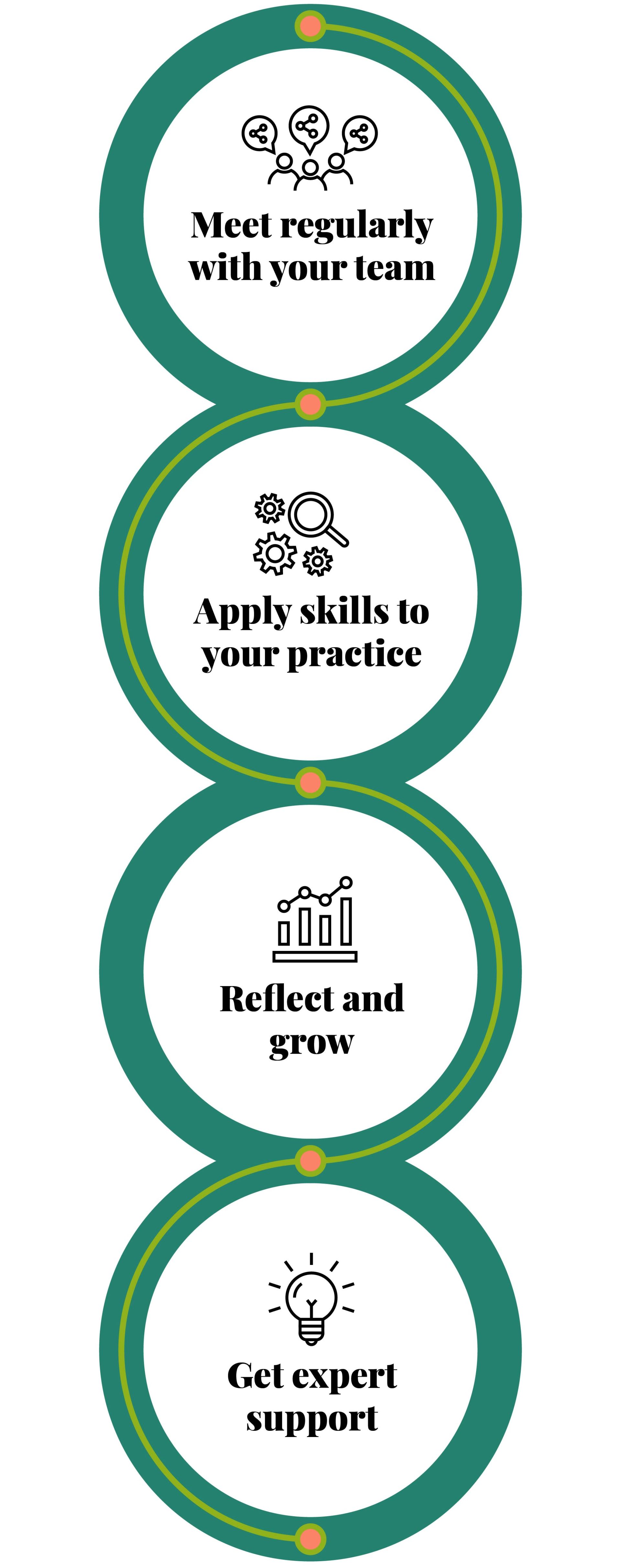Bridge the gap between knowing and doing. The Leading Responsively PLC Program gives your leadership team a ready-to-use structure, curriculum, and facilitator support—so you can lead culturally responsive school leadership learning locally.
Meet regularly with your team.
Use the Leading Responsively PLC curriculum to facilitate rich discussions, explore key concepts, and reflect on your context. Sessions are designed to be practical, flexible, and easy to implement.
Apply skills to your practice in your own context.
Put CRSL into practice through job-embedded applications between sessions. Use structured coaching protocols and job aids to support, observe, and reflect on each other’s leadership moves.
Reflect and grow between sessions.
Engage with curated readings, critical reflection prompts, and progress check-ins to help your team deepen understanding and track growth.
Get export facilitation support.
Each team has a Team Lead who can attend monthly online PD sessions with CRSLI facilitators to:
- Learn the curriculum in depth
- Develop facilitation and coaching skills
- Receive ongoing support for implementation




